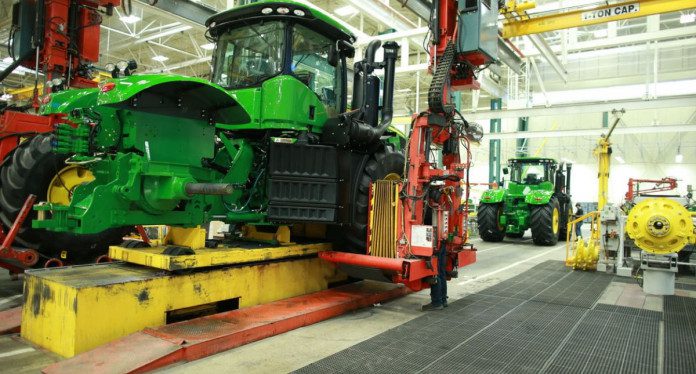News in Brief:
– The Federal Executive Council (FEC) approved the purchase of tractors and other equipment to boost food security in Nigeria.
– The government also announced supportive measures like import duty moratoriums, grain imports, and financial aid to address food inflation and shortages.
The Federal Executive Council (FEC) has made a landmark decision to enhance food security in Nigeria by approving the purchase of critical agricultural machinery. This initiative, under the National Agricultural Mechanisation Programme (NAMP), aims to revolutionise Nigeria’s agricultural landscape by supplying 1,200 tractor-trailers, 4,000 disc ploughs, and 2,000 tractors, among other essential equipment.
Tractors are essential for modern farming as they provide the necessary power to perform various agricultural tasks efficiently. The trailers attached to tractors help transport large quantities of produce from farms to markets or storage facilities.
Meanwhile, disc ploughs and disc ridges are used to prepare the soil for planting. Disc ploughs turn the soil, making it ready for sowing, while disc ridges help in creating raised rows, which can improve water drainage and soil aeration. These tools are also attached to tractors.
This initiative aligns Nigeria with other African countries like Zimbabwe, Kenya, South Africa, and Togo, where similar mechanisation programs have been successful. By modernising agriculture, Nigeria can not only boost local food production but also position itself as a key player in the global agricultural market.
Government policies to boost agriculture
The government entered into an agreement with Astride DMCC to not only supply these machines but also establish assembly plants in Nigeria. This move is significant as it promises to create jobs, transfer technology, and reduce the cost of machinery over time.
In addition to mechanisation, the FEC has announced several supportive policies:
- Import duty moratorium: A temporary suspension of import taxes on certain food products for 150 days. This aims to lower the cost of imported food and make it more accessible.
- Strategic grain reserves: The government plans to import 250,000 metric tonnes of wheat and maize to replenish national grain reserves. These reserves are crucial for stabilising food prices during shortages.
- Guaranteed minimum price (GMP): The government intends to set a GMP for agricultural commodities. This means farmers will be assured of a minimum price for their produce, protecting them from market fluctuations.
- Fortified foods: Encouraging the production of fortified foods, which are enriched with essential nutrients, to combat malnutrition.
Addressing food inflation
Nigeria is currently grappling with a food inflation rate of 40.5%, severely impacting household budgets. The cost of staple foods, especially grains, has more than doubled in the past year, exacerbating the economic hardship for many Nigerians.
Estimates suggest that by August, nearly 31 million Nigerians could face severe food shortages. In response, the government has allocated ₦155 billion to procure food supplies and will distribute financial aid of ₦50,000 to ₦100,000 households across the nation for three months.
President Tinubu has also called on state governors to actively participate in ensuring food security within their regions. This collaborative approach is essential for addressing the diverse agricultural needs across Nigeria’s 36 states.



